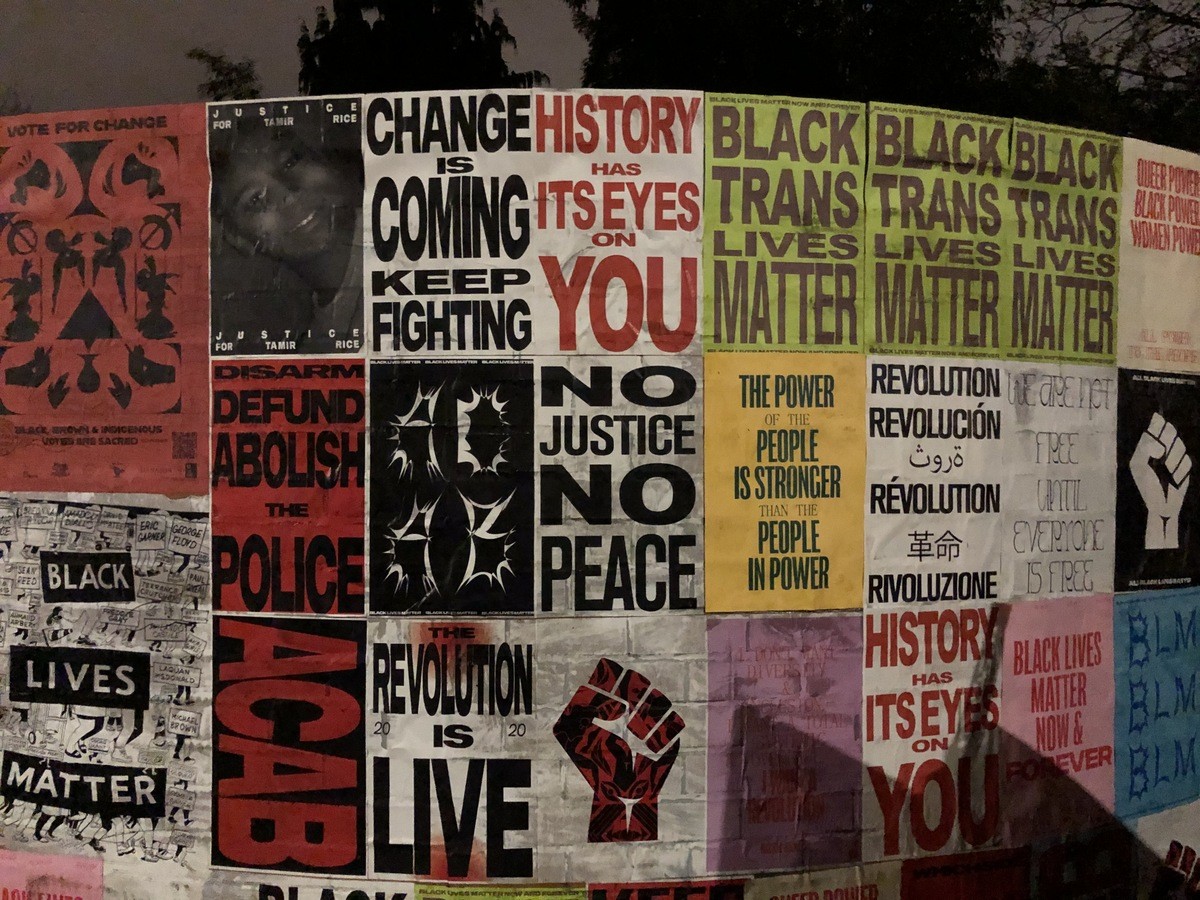Photograph by Nathaniel St. Clair
The sign in the window of my neighborhood food store reads, “Black Lives Matter.” I have shopped there at least once a week over the past year. I have never seen a Black person in the store or a Black person working there. That is not strange or unusual. There aren’t many Black people in all of northern California. Indeed, there are fewer Blacks in the Bay Area than there were in the 1940s and 1950s. They’ve been pushed out.
Just the other day, I received an email informing me that there was “a racist and bigoted Zoom hijacking incident that occurred during a virtual event that was part of Sonoma State’s Black History Month program.” A spokesperson for the university said, “We will refrain from sharing details of what occurred, because we refuse to provide these cowardly bigoted individuals the platform they seek.”
I understand and sympathize. The Internet is already rife with racist comments. It doesn’t need more, At the same time, as a member of the community and as a scholar who has written about Black Americans and about racism, I would like to know what was actually said. Just how disgusting was that?
I have heard racist comments my whole life. I usually don’t repeat them, though sometimes it seems appropriate to do so. Harvard Professor Randall Kennedy, the author of Nigger: The Strange Career of a Troublesome Word, argued that if all of used the “n” word repeatedly it would lose its force. Kennedy made that argument in 2003. Over the course of the past 18 years, the “n” word has been used repeatedly. It has not lost its bite and its power to inflict pain.
Kennedy was not the first African-American to use the “n” word in the title of a book. Comedian and social critic Dick Gregory wrote Nigger: An Autobiography, and the Black nationalist, H. Rap Brown wrote, Die Nigger Die: A Political Autobiography. Apparently, Muhammad Ali once said, “No Viet Cong ever called me nigger.” If he didn’t use those exact words, he used words that expressed much the same idea. When he refused induction into the military, he did say, “I ain’t got no quarrel with them Vietcong.”
For many years, rappers have revived the word “nigger,” as though it was a badge of honor, which part of the reason that Dick Gregory and H. Rap Brown used it. It’s difficult not to hear the “n” word in the lyrics for popular music.
As we approach the end of Black History Month, it might be helpful to remind ourselves that while we ought to live and breath by the concept that “Black Lives Matter,” Black lives still don’t matter greatly in the U.S.A., where whiteness is privileged over Blackness. Can we accept the fact that this is a racist nation, and at the same aim to put an end to our racist nation? I would like to believe we can do both.
We ought not to pretend that racism doesn’t exist. If “a racist and bigoted Zoom hijacking incident” can happen at Sonoma State University (SSU) then it can happen most anywhere. The Civil War, the Civil Rights Movement, Black Power and Obama in the White House didn’t end racism. That’s not to say we ought to give up. Rather we might recognize what we’re up against, and try to understand why a racist or racists would want to hijack a Zoom event. It might help to have a teach-in, to print or publish the actual language and to discuss why it’s racist.
Before there was Zoom, there was racist graffiti on the walls at Sonoma State University. When Black students went off campus they were called “nigger.” For years there were Black students on the campus. These days there are very few, indeed. Blacks don’t want to attend a school where there are few, if any Blacks.
Some white parents have wanted their daughters to attend SSU because there aren’t many Black males. They have thought that the absence of Black males would mean that the campus was safer for white women, as though white men were somehow incapable of sexual assault. If that isn’t racist I don’t know what is.
A new movie titled Judas and the Black Messiah, which is inspired by the life and the death of the Chicago Black Panther, Fred Hampton, should remind us that Black lives often haven’t mattered. It should also remind us that law enforcement officials, with the official backing of the State, have shot and killed Black men. We might also give up the idea of a Messiah, whether Black, white, brown, yellow or red. There are no Messiahs. There never have been any.
It’s a nice gesture that my neighborhood store has posted in a window the sign, “Black Lives Matter.” But as long as it remains a gesture and a mere sign, Black lives won’t really matter and racist incidents will continue right in my own backyard. They will continue on a campus, whether virtual or not, where I taught for 30 years, and where I rarely if ever had a single Black student in a class. Like many other schools, SSU talks about diversity, but doesn’t do nearly enough to make diversity a reality.
Have you noticed that nearly all of the men and women who invaded the Capitol on January 6, 2021 were white? Have you wondered why that was? What more evidence do you want that the U.S. is a racist nation?
PrintJonah Raskin | Radio Free (2021-02-23T07:56:43+00:00) Notes on Black History Month, 2021: No More Black Messiahs, Please. Retrieved from https://www.radiofree.org/2021/02/23/notes-on-black-history-month-2021-no-more-black-messiahs-please-2/
Please log in to upload a file.
There are no updates yet.
Click the Upload button above to add an update.
